The Happy S.C.I.E.N.C.E.
THE HAPPY S.C.I.E.N.C.E.
Comenius Project LLP
Search Creativity Instruction Education Nature Culture Europe
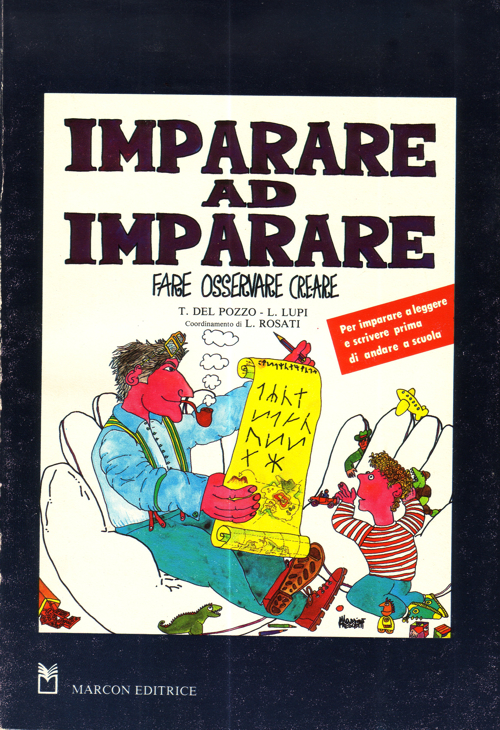
Copertina di Massimo Presciutti
per un libro didattico della Marcon Editrice, Città di Castello 1987
Ho saputo dell'approvazione del Progetto Comenius "The Happy S.C.I.E.N.C.E." in Francia quando su Le Monde (Dimanche 19 – Lundi 20 Juillet 2009) esce una recensione a un volume riguardante tutti i romanzi dei viaggi sulla Luna prima della conquista spaziale di quarant'anni prima ("Le roman de la lune", textes choisis, commentés et presentés par Claude Aziza, Omnibus, France 2009). «Au de part, pour aller sur la lune, il suffisait de le vouloir. La manière importait peu, le voyage lunaire était avant tout un voyage poétique. C'éait un temps où la science ne s'était pas encore émparée des rêves de l'homme – c'etait le bon temps». Invece di tradurre dal francese meglio la lingua inglese del nostro Comenius: «The title "Happy Science" places our project between Science and Art. If it is true that Science attends when the senses do not suffice, It is also true that only the Creativity can be innovative where the Science lost its humanity» (5.1 summary).
Ma non è un ritorno indietro, la memoria non è tornare indietro anzi al contrario è sanità contrapposta all'Alzheimer, la forma di demenza senile più diffusa, è l'unica possibilità di vita umana, caratterizzata da possibilità infinite di viaggi spazio–temporali. Nel senso epicureo del termine la morte è più forte della violenza de/mente verso la quale essa, come dato di fatto naturale, assume l'aspetto di giudice implacabile nonché di curatore fallimentare. "Abbiamo perduto l'infanzia, poi la fanciullezza, poi la gioventù. Tutto il tempo passato fino a ieri è morto per noi: questo stesso giorno che stiamo vivendo lo dividiamo con la morte. Come non vuota la clessidra l'ultima goccia, ma tutte quelle che sono già cadute, così l'ultima ora in cui cessiamo di esistere non produce, da sola, la morte, ma la compie; allora noi giungiamo al termine, ma da tempo vi siamo avviati. [...] Non viene una sola volta la morte: quella che ci rapisce è solo l'ultima morte" (Lucio Anneo Seneca, "L'arte di vivere", Lettera 24, Come si deve affrontare la morte, Rizzoli, Milano, 2002).
La ricerca della felicità attraverso un approccio scientifico com'è intesa in "Happy S.C.I.E.N.C.E." richiede una solidità interiore riguardo al fatto che l'armonia che sta alla base del movimento dei pianeti è la stessa dei disegni di Leonardo, degli scarabocchi di Picasso, delle scoperte di Einstein, della matematica di Russel, dei quadri di Mirò ispirati alla grafica dei bambini della scuola primaria e pre-primaria, delle canzoni dei Beatles, delle infinite realizzazioni umane che aspettano di essere scoperte e riscoperte ancora. Tutto diventa possibile in questa nostra era dove l'impatto delle nuove tecnologie ha lo stesso valore delle più grandi scoperte, compresa la scoperta dell'America.
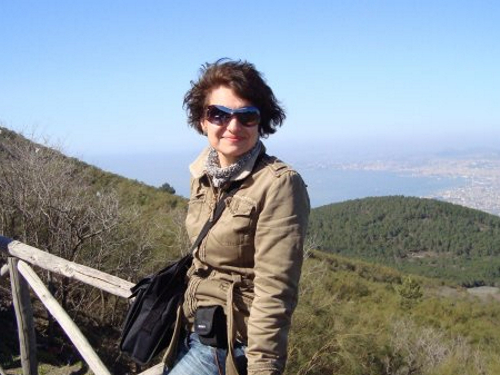
Il nostro partenariato, che ha ottenuto un finanziamento adeguato da parte della Comunità Europea grazie al programma L.L.P. Comenius, nasce da due gemellaggi elettronici, uno in lingua francese (Romania ed Italia), un altro in inglese (Bulgaria ed Italia); a ciò c'è da aggiungere un felice incontro con la scuola della Polonia. Lo spostamento ad est non ha nessun significato politico od economico, va visto come prodotto di una serendipità caratteristica di un percorso particolare. Il titolo "Happy Science" colloca il nostro progetto tra scienza ed arte. Se è vero che la scienza intercede come sesto senso, è anche vero che soltanto la creatività può essere innovativa dove la scienza perde la sua umanità. L'acronimo S.C.I.E.N.C.E. (Search – Creativity – Instruction – Education – Nature – Culture – Europe) rappresenta la strada maestra di un progetto biennale che attraversa lo spazio-tempo, un approccio alla conoscenza di un patrimonio nel campo dell'infinito sviluppo che distingue la razza umana. Uno sviluppo non lineare ma labirintico dove motore del progresso è l'errore umano e non l'infallibile istinto animale. "- Eppure, - esclamò Sandre - i castori non vanno a scuola per imparare. - E non hanno bisogno d'andarvi - rispose Serge. - A che serve la scienza, che qualche volta sbaglia, quando c'è un istinto che non sbaglia mai? Questa diga, ragazzo mio, è stata fatta dai castori come le formiche fanno i formicai, come i ragni tessono le ragnatele, come le api dispongono le cellule negli alveari, e infine come gli alberi e gli arbusti producono fiori e frutti. Non vi è da parte loro nessuna incertezza, ma anche nessun progresso. Del resto, non sarebbe necessario far progressi in questo caso, perché il castoro di oggi costruisce con la stessa perfezione del primo castoro che apparve nel globo. La possibilità di far meglio non è dono degli animali, ma propria dell'uomo, e lui solo può elevarsi di progresso in progresso nel campo delle arti, delle industrie e delle scienze. Dunque ammiriamo questo meraviglioso istinto degli animali, che permette loro di fare simili cose, ma dobbiamo considerare queste cose solo come opera della natura. - Comprendo la vostra osservazione - disse Jean. - Qui sta la differenza fra l'istinto e la ragione, che, in fin dei conti, è superiore all'istinto, anche se soggetta a sbagliare. - Proprio così, amico mio - rispose Serge - e questi errori, successivamente riconosciuti e corretti, sono le tappe sulla via del progresso. - In ogni modo, - replicò Sandre - ripeto quel che ho detto: i castori non hanno bisogno di andare a scuola. - Giustissimo, ma gli uomini rimangono bestie quando non ci vanno – rispose Serge" (Jules Verne, "Cesar Cascabel" (1890), Gruppo Ugo Mursia Editore S.p.A., Torino 2004 – Traduzione dal francese di Enzo Peru).
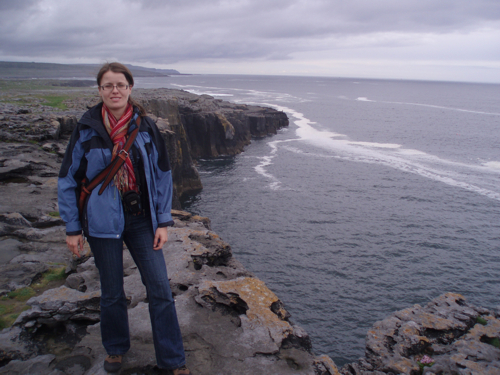
I coordinatori vengono ad essere un team a livello europeo. Agli insegnanti delle differenti scuole che aderiranno al progetto è richiesto:
- entusiasmo come motore;
- apertura verso le differenti culture nella cura della propria diversità con leggerezza, stile ed eleganza;
- profondità come identità individuale nel senso di una mentalità non ristretta;
- senso dell'appartenenza a un gruppo più o meno utopico di cittadinanza attiva il cui obiettivo sia la risoluzione dei conflitti all'interno di soluzioni logiche e condivisibili il più possibile.
Il rapporto dei coordinatori con le differenti Istituzioni scolastiche e con i colleghi si svilupperà, come già è avvenuto nel caso dei due Comenius precedenti, "Linguistic Adventures" e "Art of living", in sintonia con la realizzazione del progetto stesso guidato in prima persona dagli autori ed operatori di "Happy S.C.I.E.N.C.E" cioè dal team transnazionale.
Attraverso un video segnalato dall'Agenzia LLP il nuovo Comenius ha quindi alzato le vele. In pratica il video nasce da un lavoro costante e coerente che rende visibile l'idea del Lifelong Learning se si pensa che, in un minuto, mette insieme musiche e immagini che si distendono nell'arco di vent'anni (1989 – 2009) e che, per esempio, le bambine che cantano, così come la stragrande maggioranza dei ragazzi e delle ragazze, sono rimasti in contatto con l'esperienza del Laboratorio Linguistico Musicale che, dopo l'incontro con i programmi prima Socrates prima e Lifelong Learning poi, ha costruito un percorso (strada facendo) che è stato ed è sempre attivo pur nei cambiamenti e stravolgimenti istituzionali dove è stato operativo.

Il mio lavoro di insegnante ha avuto uno sviluppo di tipo quinquennale, ovvero cinque anni con la stessa classe per coprire un intero ciclo di scuola elementare alternati a cinque anni di distaccamento dalla classe su un Progetto elaborato da me stesso in base a una riconosciuta professionalità, che si è svolta in modo continuativo attraverso un produttivo rapporto le famiglie, i colleghi e tutte le Istituzioni locali, Nazionali ed Europee coinvolte, che nel corso del tempo ha dato e dà ideali e strumenti per l'orientamento agli allievi affinché questi siano artefici del proprio progetto di vita.
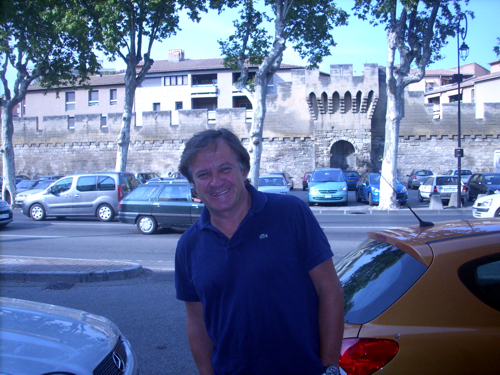
Comenius Project LLP
Search Creativity Instruction Education Nature Culture Europe
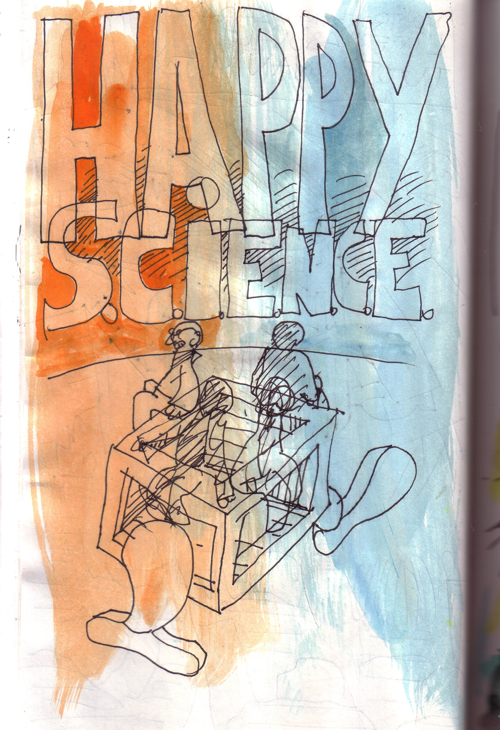
I come to know about the approval of the Comenius Project "The Happy S.C.I.E.N.C.E." in French when on the Le Monde (Dimanche 19 – Lundi 20 Juillet 2009) newspaper comes out a book review regarding all the novels of the Moon travels before the space age of forty years ago ("Le roman de la lune", textes choisis, commentés et presentés par Claude Aziza, Omnibus, France 2009). «Au de part, pour aller sur la lune, il suffisait de le vouloir. La manière importait peu, le voyage lunaire était avant tout un voyage poétique. C'éait un temps où la science ne s'était pas encore émparée des rêves de l'homme – c'etait le bon temps». Instead of translating from the French language it's better the English language of our Comenius: «The title "Happy Science" places our project between Science and Art. If it is true that Science attends when the senses do not suffice, It is also true that only the Creativity can be innovative where the Science lost its humanity» (5.1 summary).
But isn't a regression, the memory isn't came out of the present time but it is health opposite to the Alzheimer (the kind of geriopsychosis more diffused), it is the only possibility of human life, marked by a boundless powers about the space-time. In the Epicurean point of view, the death is more strong than the forgetful violence because the death can be an implacable judge or a kind of a bankruptcy trustee. "We missed the infancy, then the childhood, then the youth. All the past time until yesterday is died for us: This same day we are living we are sharing with the death. Like don't empty the clepsydra the last drop, but all that to fall down, so the last hour we are stop to live doesn't make, by oneself, the death, but accomplish it; so we are coming to the end, but since long time we started. [...] Doesn't came only once the death: that one kidnapped us is only the last death". (My translation in English language from: Lucio Anneo Seneca, "L'arte di vivere", Lettera 24, Come si deve affrontare la morte, Rizzoli, Milano, 2002).
The search for happiness through a scientific approach like we mean in "Happy S.C.I.E.N.C.E." ask for an inner life solidity about the matter that harmony staying at heart of Picasso's doodles, Einstein's discoveries, Russel's mathematics, Mirò's paintings prompted by the children graphics of the primary and preprimary school, Beatles songs, endless human accomplishments waiting for to be revealed and rediscovered again. All come to possible in this our age where the effects of new technologies got the same value than more big discoveries, including the discovery of America.
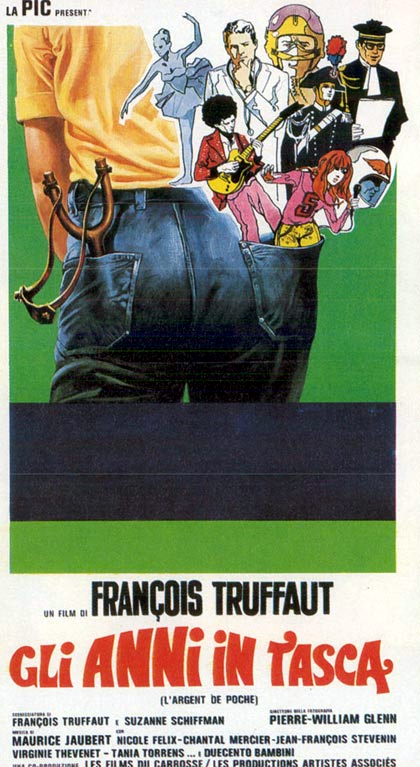
(France, 1975) by François Truffaut
Our Partnership, that obtained a convenient financing by the European Community thank to the L.L.P. Comenius Programme, was born from two e.Twinning Projects, the one in French (Romania and Italy) and the other in English (Bulgaria and Italy), as well as a happy meeting with the Polish school. The title "Happy Science" places our project between Science and Art. If it is true that Science attends when the senses do not suffice, It is also true that only the Creativity can be innovative where the Science lost its humanity. The acronym S.C.I.E.N.C.E. (Search – Creativity – Instruction – Education – Nature – Culture – Europe) represents the mainstay of a biennial project training to the time and space, like a heritage in the endless development distinguishing the human race. A no-linear but labyrinthine development, where the motive of the progress is the human error and no the animal instinct that cannot be mistaken. "Yet, - exclaimed Sandre – the beavers doesn't came to the school to learn. – And doesn't need to go there – answered Serge. - What the science needs, that sometime can do mistakes, when it is an animal instinct that never mistakes? (my translation from Jules Verne, "Cesar Cascabel" (1890).
- Et pourtant, s'écria Sandre, ces castors ne sont point allés à l'école pour apprendre...
- Ils n'avaient pas besoin d'y aller, repondit M. Serge. À quoi bon la science, qui se trompe quelquefois, quand on a l'instinct qui ne se trompe jamais. Cette digue, mon garçon, les castors l'ont faite comme les fourmis font leurs fourmilières, comme les araignées tissent leurs toiles, comme les abeilles disposent les alvéoles de leurs ruches, enfin comme les arbres et les arbustes produisent des fruits et des fleurs. Pas de tâtonnements de leur part, pas de progrès non plus. D'ailleurs, il n'y en a pas à faire en ce genre d'ouvrage. Le castor d'aujourd'hui bâtit avec autant de perfection que le premier castor qui ait apparu sur le globe. La perfectibilité n'est point le fait des animaux, elle est le propre de l'homme et lui seul peut s'élever de progrès en progrès dans le domaine des arts, de l'industrie et des sciences. Aussi admirons sans réserve ce merveilleux instinct des animaux, qui leur permet de créer de telles choses. Mais, ces choses, ne les considérons que comme oeuvres de la nature!
- C'est cela, monsieur Serge, dit Jean, et je comprends bien votre observation. Là est la différence entre l'insinct et la raison. En somme, c'est la raison qui est supérieure à l'instinct, bien qu'ellesoit sujette à se tromper...
- Incontestablement, mon ami, repondit M. Serge, et ces erreurs, successivements reconnues et réparées, ne sont qu'un acheminement dans la voie du progrès.
- En tout cas, répliqua Sandre, je m'en tiens à ce que j'ai dit! Les bêtes n'ont pas besoin d'aller à l'école...
- D'accord, mais les hommes ne sont que des bêtes, quand ils n'y sont point allés! Répondit M. Serge.
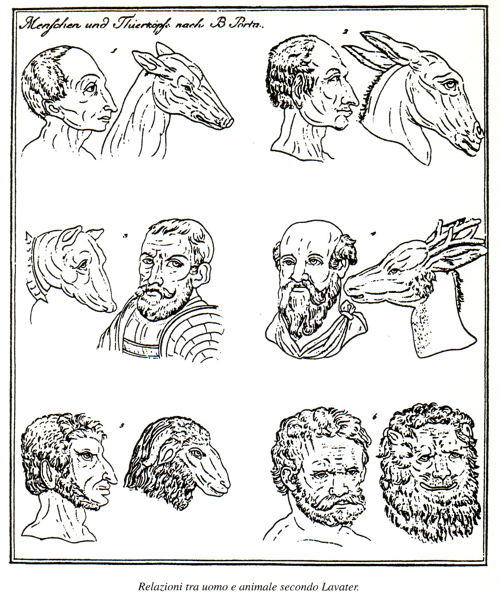
The coordinating teachers became to be a team at European level. The teachers of the different Schools of the Project have been asked if:
- enthusiasm like the motive;
- opening to the different cultures and styles remaining ourselves with lightness;
- profundity like individual identity ( in the sense of a not herd mentality);
- belonging to a group more or less utopian of the active citizenship (in the sense of the surmounting, of the conflict concept like a logical solution of the problems).
The relation of the coordinator teachers with the different school Institutions and colleagues will develop, like it happened for the two previous Comenius, "Linguistic Adventures" and "Art of living", following the realization of the same project under the leadership of the authors and operator of Happy S.C.I.E.N.C.E. that is the international team.
Through a video recommended by the Italian National Agency LLP our new Comenius was clew the sails up. Practically the video was born by an unfailing and coherent work visualizing the Lifelong Learning idea considering that, in only one minute, it collects a music and image stretching out over twenty years (1989 – 2009) and, for example, the singing children, like the most of old pupils, remained in touch to date with the experience of the Musical Linguistic Laboratory that, after the confluence with the Socrates sooner and Lifelong Learning Programmes later, built a way (on the way) always active even inside the institutional changes and twisting where it was been in operation.
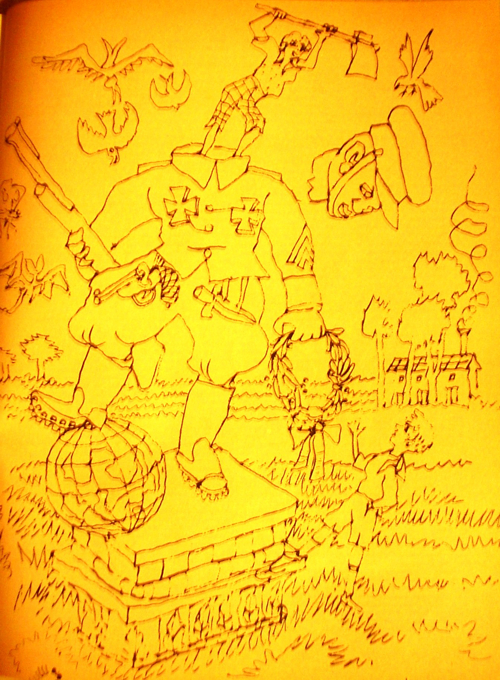
"Illustrazione italiana", anno 87 n. 9, settembre 1960
My teaching work has been a quinquennial development, that is five years with the same class to cover a whole cycle of the primary school by turns, being five years out of ordinary programs to devote to Projects, worked out by myself, under a recognized professionalism, carried out in a continual work, keeping a prolific relationship with families, colleagues and all the local, National and European involved Institutions, giving orientation to pupils along the time of the ideals and tools to create their own life project. (from Study visit application form, Murcia, Spain 6th–11th April 2008).
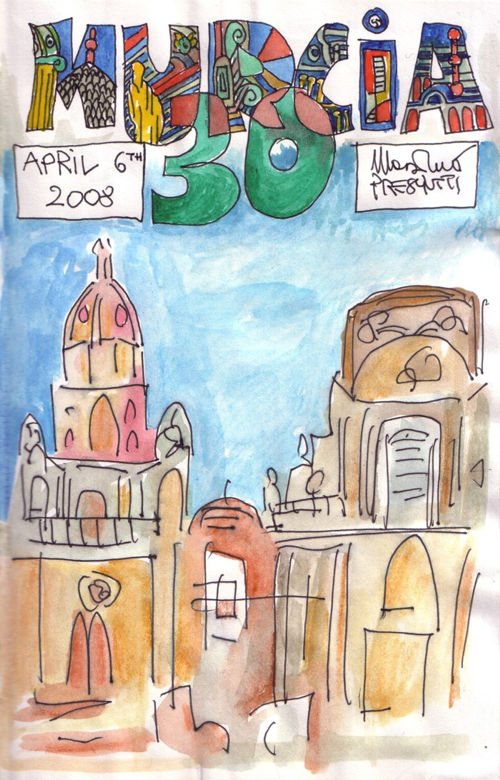
Massimo Presciutti, Florence – Gubbio, August 2009

